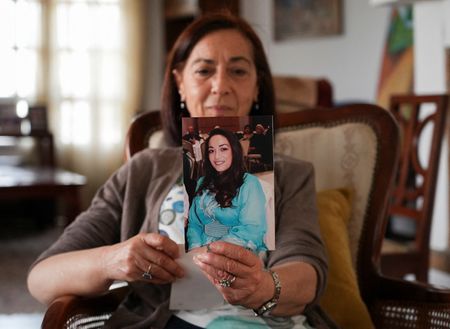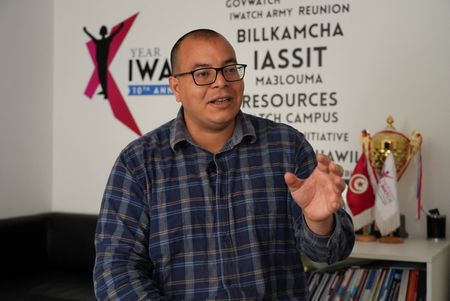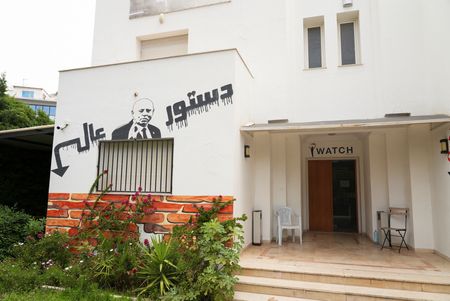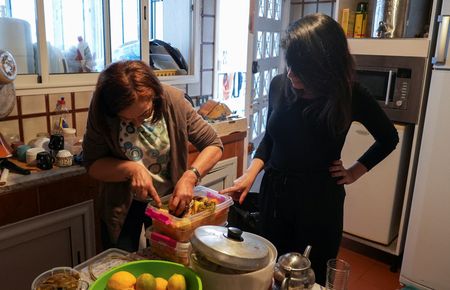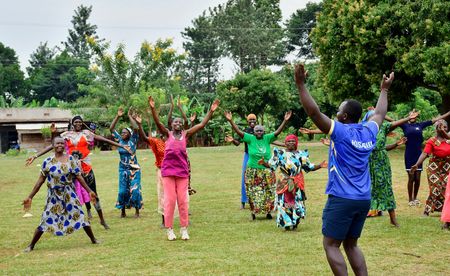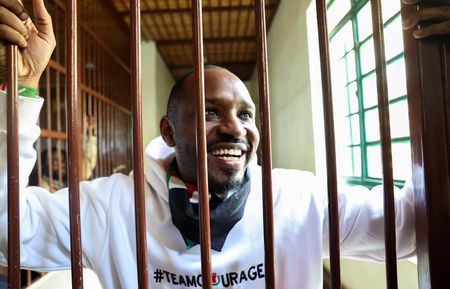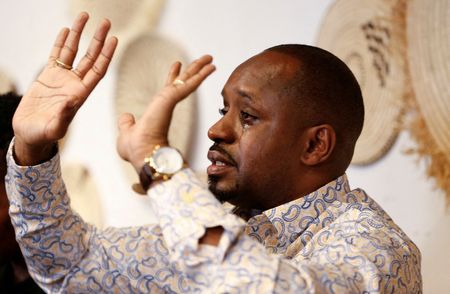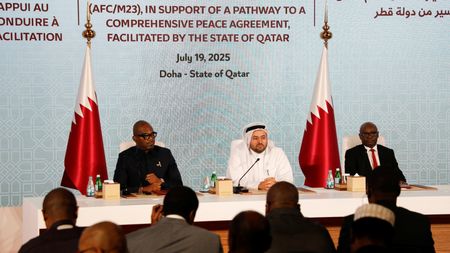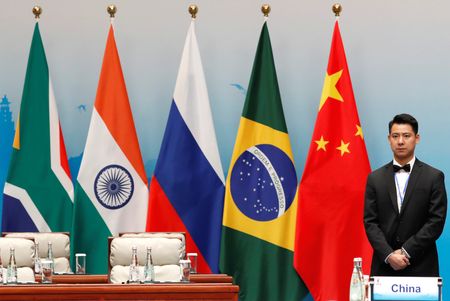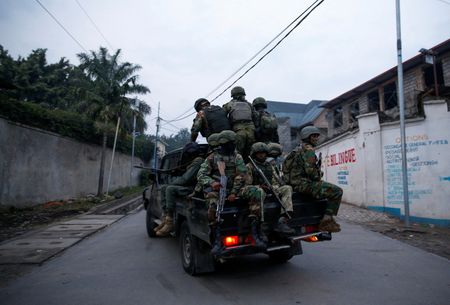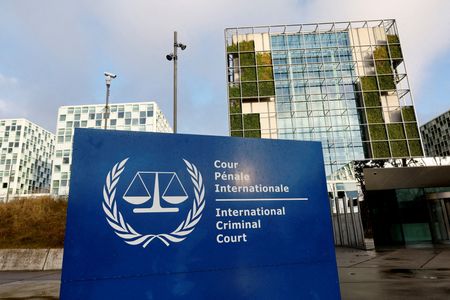By Tarek Amara
TUNIS (Reuters) -In May 2024, Tunisian activist Cherifa Riahi was arrested just two months after giving birth, accused of harbouring illegal migrants. Over a year later, she is still in prison without charge.
Rights groups see Riahi’s case as a symbol of accelerating repression of civil society under President Kais Saied, who dissolved parliament in 2021 and began ruling by decree.
The crackdown marks a significant turnaround for Tunisia, where civil society groups flourished in the wake of the 2011 uprising that unseated President Zine El-Abidine Ben Ali, inspired other Arab Spring uprisings, and helped shape a democratic transition.
As head of a refugee support group, Riahi had been helping sub-Saharan asylum seekers and other migrants find housing and access medicine and food. Her family says she did nothing wrong.
The forced separation from her daughter and young son has been traumatic.
“The girl doesn’t recognise her mother at all,” Riahi’s mother Farida, who is now caring for her grandchild, told Reuters at their family home in La Marsa near the capital, Tunis.
“They took her while she was breastfeeding. We didn’t even have time to understand what was happening.”
Since Saied’s power grab, at least a dozen civil society figures like Riahi have been detained on allegations activists denounce as fabricated, according to rights groups and lawyers. At least 10 civil society groups have had their assets frozen and offices raided, they say.
The Tunisian General Labour Union, which won the 2015 Nobel peace prize with other civil society groups and could once bring tens of thousands onto the streets, has been sapped by the arrests of junior officials on corruption charges.
The Tunisian government’s media office did not respond to calls and written questions seeking comment about Riahi’s case and those of other activists and civil society groups.
Saied, 67, has accused civil society groups of “serving foreign agendas” and undermining national unity.
He has said he will not be a dictator and that freedom and democracy will be preserved, but that he will not allow chaos or interference through foreign funding or organisations that represent a “tool of treason.”
Activists warn that some of Tunisia’s last surviving democratic gains are at risk as the judiciary, media and parliament have all come under tighter executive control and most opposition party leaders are in prison.
“The attack on civil society organisations is not an isolated incident,” said Romdhane Ben Amor of the Tunisian Forum for Economic and Social Rights, an independent advocacy group.
“It comes within the context of the authorities’ plan to close civic space and to end the democratic openness achieved by Tunisians after January 14, 2011.”
‘SEEN AS ENEMIES’
In Tunis, the offices of I Watch, an anti-corruption watchdog founded after the 2011 revolution, used to bustle with dozens of employees, volunteers and journalists.
These days, only three employees work on-site. Dozens work remotely, some fearing raids or arrests.
Wajdi Belloumi, I Watch’s president, said its bank transfers have been hindered and official investigations into the group are piling up. Hotels have stopped renting spaces for the group’s events, citing vague instructions from authorities, Belloumi said.
Last year, the electoral commission refused for the first time to allow I Watch to monitor elections due to suspicions of foreign funding.
“We’re seen as enemies now,” Belloumi told Reuters. “Many volunteers are afraid. Whistle-blowers have gone quiet. The pressure is everywhere — legal, financial, even personal.”
Ben Amor said he had received anonymous threats and started looking over his shoulder in public spaces.
“People start saying, ‘This man must be gotten rid of’,” he said, referring to comments sent in private messages, or “‘your son studies at that school, your daughter studies at that school … I saw you on that street'”.
Foreign governments that once championed Tunisia’s democratic transition now prioritise curbing migration and short-term stability, rights groups say.
Ben Amor said he believed he had been targeted particularly after speaking out against Saied’s recent anti-migrant rhetoric.
In 2023, the same year Tunisia signed a pact with the European Union aimed at stemming migration across the Mediterranean, Saied said illegal immigration was part of a “conspiracy” to alter Tunisia’s demographics.
Since then, authorities have dismantled tents and carried out forced deportations — the campaign amid which Riahi was detained.
Though the space for civil society groups is shrinking by the day, Belloumi said he remains committed.
“We chose this path — transparency, justice, accountability,” he said. “And we’re not walking away.”
(Reporting by Tarek Amara, Editing by Alexandre Dziadosz and Aidan Lewis)

